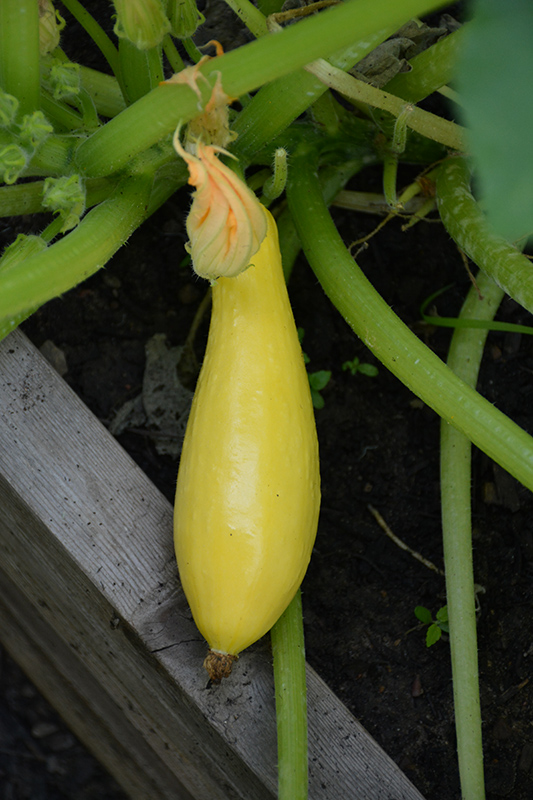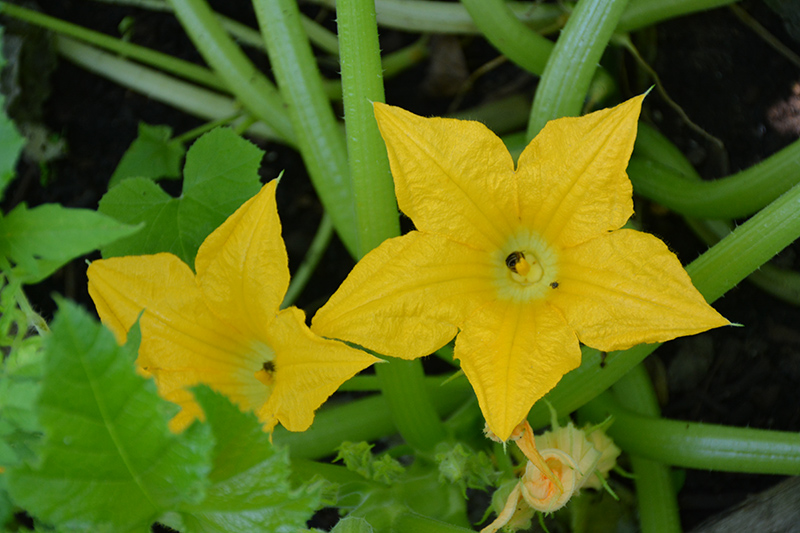Multipik Squash
Cucurbita pepo var. recticollis 'Multipik'
Height: 18 inches
Spacing: 24 inches
Sunlight:
![]()
Hardiness Zone: (annual)
Description:
A beautiful early maturing, high yielding and vigorous bush type variety; produces smooth bright yellow straight neck squashes all season long; pick often for larger and longer harvest time; light sweet flavor perfect for cooking, roasting and stir fry
Edible Qualities
Multipik Squash is an annual vegetable plant that is commonly grown for its edible qualities. The entire above-ground parts of the plant are edible, and can be harvested at any time in the season. The edible parts have a pleasant taste and a soft texture.
The plant is most often used in the following ways:
- Cooking
- Baking
- Freezing
Planting & Growing
Multipik Squash will grow to be about 18 inches tall at maturity, with a spread of 24 inches. When planted in rows, individual plants should be spaced approximately 24 inches apart. This vegetable plant is an annual, which means that it will grow for one season in your garden and then die after producing a crop.
This plant is typically grown in a designated vegetable garden. It should only be grown in full sunlight. It does best in average to evenly moist conditions, but will not tolerate standing water. It may require supplemental watering during periods of drought or extended heat. It is not particular as to soil pH, but grows best in rich soils. It is somewhat tolerant of urban pollution. Consider applying a thick mulch around the root zone over the growing season to conserve soil moisture. This is a selected variety of a species not originally from North America.; however, as a cultivated variety, be aware that it may be subject to certain restrictions or prohibitions on propagation.
Multipik Squash is a good choice for the vegetable garden, but it is also well-suited for use in outdoor pots and containers. It is often used as a 'filler' in the 'spiller-thriller-filler' container combination, providing the canvas against which the larger thriller plants stand out. Note that when growing plants in outdoor containers and baskets, they may require more frequent waterings than they would in the yard or garden.


